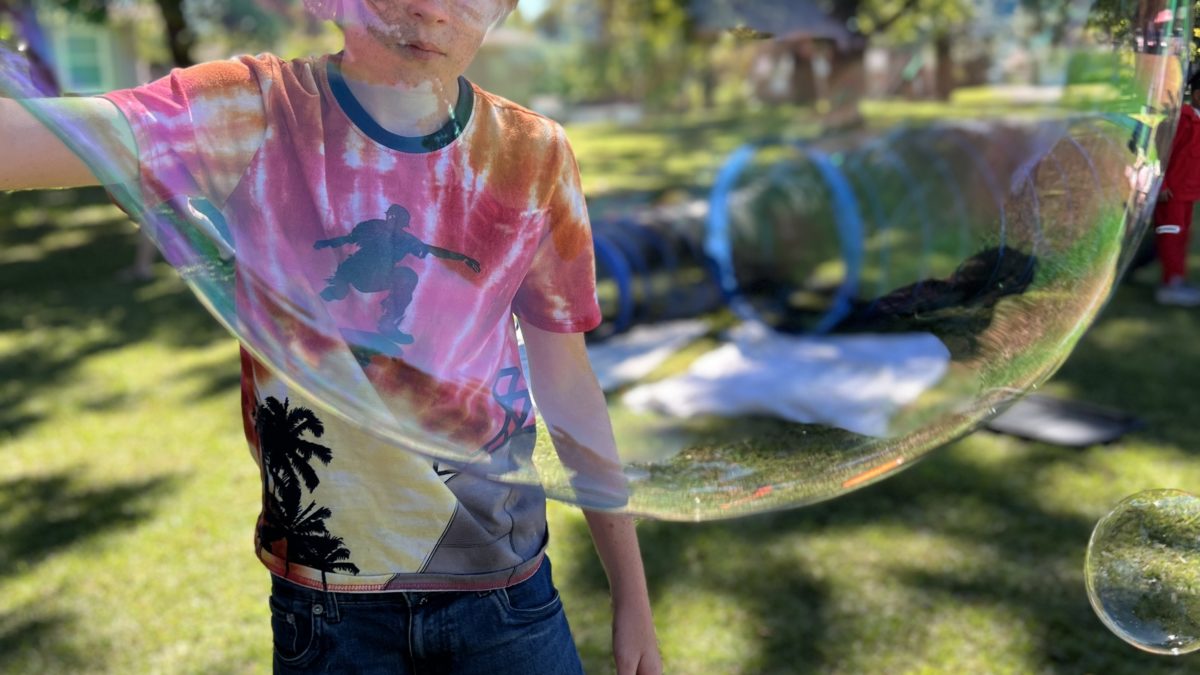Keep Your Child Safe at Summer Camp with These Tips

Summer is just around the corner and many parents are considering what summer camps are available and making plans for their children. No matter if you’re selecting a day camp or a sleepaway camp, your child’s safety is most important.
So before you hit “register,” set aside time to research your top choices and ensure that you and your child feel confident about where they’ll be spending the summer. You can also use this time to prepare your child and give them a toolbox for the future by facilitating important conversations on body boundaries and keeping secrets.
Tip #1: Teach your child about body boundaries.
Before you send your child to camp, have a conversation about healthy body boundaries and how to ask for help.
Whenever you have these conversations, commit to being direct and transparent about body parts (even if it makes you feel uncomfortable!). Use anatomical words to describe genitals instead of relying on cutesy or covert words. In doing so, you’re giving your child permission to talk honestly about their own body and genitals and avoid feelings of shame or discomfort. You can also use this time to explain that these parts of the body are very private and should not be touched by anyone outside of a pediatrician or someone with a specific reason to do so.
Tip #2: Teach your child how to say no and ask for help.
Teaching your child how to say no starts at home. Never force your child to accept hugs or unwanted physical content—even from relatives or immediate family members. Affirm that it is perfectly okay for your child to say no when a situation makes them feel uncomfortable or unsafe.
This is also a good time to share details with your child about the importance of asking for help and finding a safe adult. Remind them that no matter what someone tells them, they’ll never get in trouble for asking for help.
Tip #3: Do research on the camp.
As you start your search for summer camps, look for camps that are accredited by the American Camp Association (ACA).
Although most states are responsible for the licensing and inspections, ACA handles training and safety standards and provides access to educational and professional development tools. ACA accreditation doesn’t guarantee a child’s safety—however, it does signify that a camp has taken significant steps to prioritize safety standards.
Before you register your child for a summer camp, consider reaching out and having a conversation with the owner or administrative director. During this time, be wary of anyone who is defensive or uncertain about the answers.
Key questions to ask:
- What safety policies and procedures does the camp have in place?
- Who is responsible for enforcing camp rules?
- What is the ratio of staff to children?
- How do they train the staff for hazardous situations? Is there an emergency preparedness plan?
- Does the staff receive training about child sexual abuse? If so, what is the training?
- In the case of an emergency or abuse concern, how does the camp communicate with families? What is the protocol?
- Are background checks required for camp counselors and employees?
- If there is a pool or lake at the camp, are the lifeguards certified?
- How are the children monitored at camp?
- Do campers receive information on what to do if they feel unsafe?
- Are there any scenarios in which staff members are allowed to be alone with a camper? (The answer should always be “No”!)
- Does the camp monitor the behavior of older campers with younger campers? How do they monitor it?
- Does the camp have social workers on staff to support students through emotional or social challenges during their time (i.e. homesickness or social challenges)?
Tip #4: Remember you can only control so much.
While you can certainly take precautions to minimize your child’s risk of harm and feel confident about your decision, you can never fully eliminate the unknown. That’s why it’s so important to equip your child with the tools and resources they need so they can effectively navigate or cope with negative experiences.
Additional Resources
Children’s Cove: Summer Planning Safety and Prevention
Darkness to Light: Safety at Summer Camp
The Mama Bear Effect: Rock the Talk-Keeping Kids Safe from Sexual Abuse this Summer
Questions?
We’re here to help. Reach out to us at (910) 938-0336. For additional resources and information, check out our previous post: Don’t Force the Hug.
